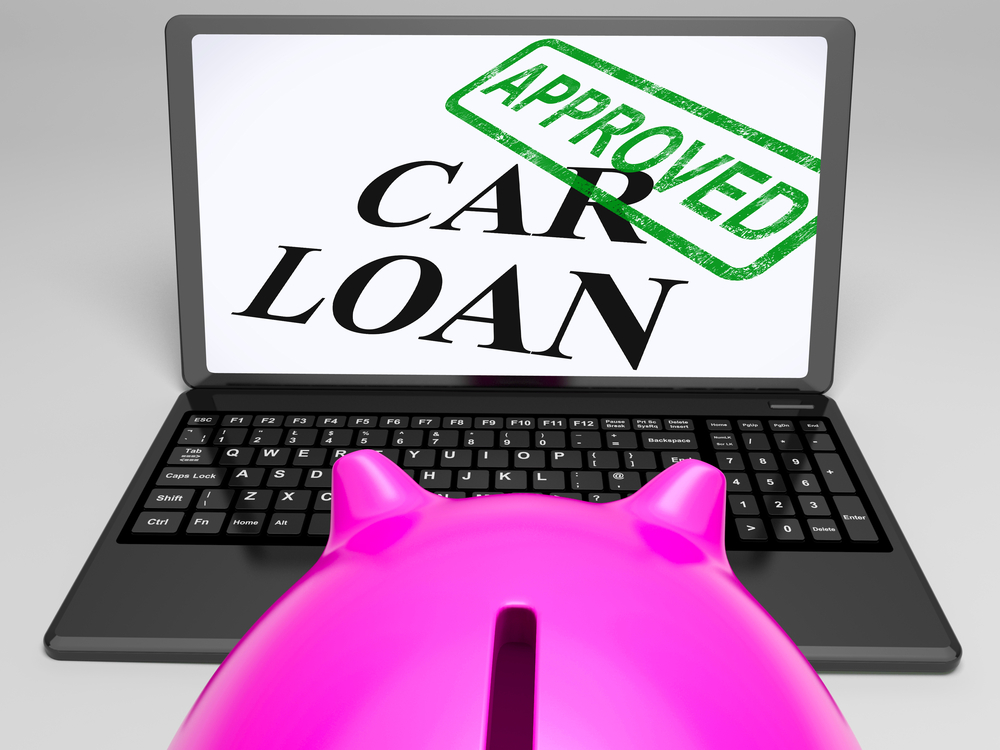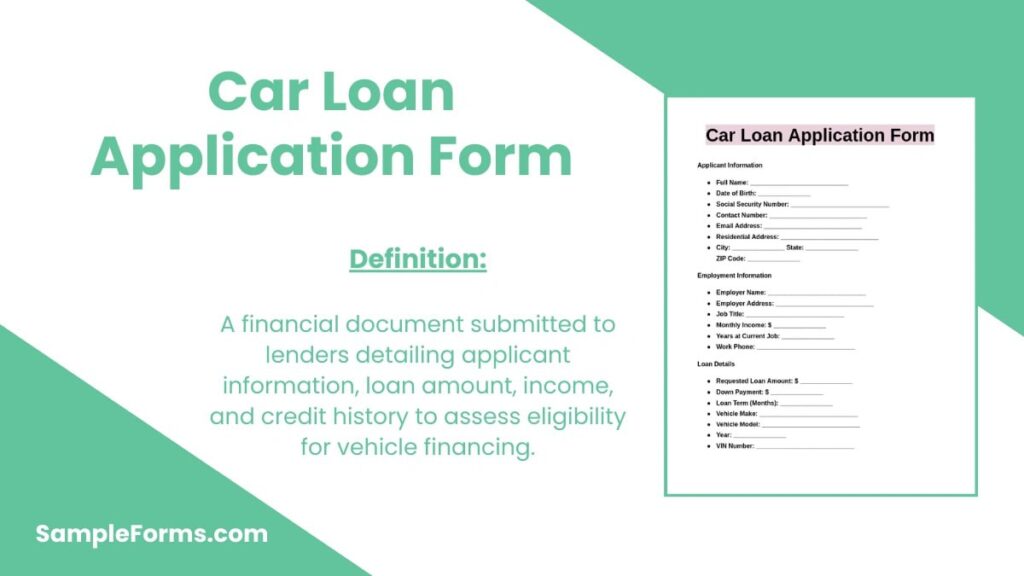
How to Get Car Loans Approved First Time: UK Buyer’s Guide
- August 21, 2025
- Remy Anderson
- Car Finance
Summary
- Your credit score is crucial for obtaining car loans approved, as low scores can lead to higher rates or rejections.
- Prepare by checking your credit report, understanding your budget, and choosing the right type of car finance.
- Gather necessary documents, including proof of identity, address, and income, to facilitate the application process.
- Be aware of application accuracy; small mistakes can delay your approval or lead to outright rejection.
- Consider options for bad credit like guarantors or larger deposits to improve your chances of getting approved.
Table of contents
Car Loans Approved First Time
Your credit score determines everything when lenders assess car loans in the UK. Low scores mean higher rates or outright rejection from the best deals.
Car loans exist for one purpose: buying vehicles. Lenders care about your employment status, workplace, and monthly earnings. They also demand three years of UK address history.
The Financial Conduct Authority wants lenders to check if you can pay back a loan before they say yes. Accurate information isn’t optional—it’s essential. Loan terms span one to five years, sometimes longer.
This guide has what you need to get the cheapest car loans. It shows the documents you need and gives tips for your application. This will help you get approved the first time.
Do These Three Things Before You Apply

Image Source: https://pixabay.com/
Smart preparation beats rushed applications every time. These steps help you get better rates and avoid you being turned down.
Check your credit score and report
Your credit history comes first when seeking a car finance application. Lenders judge you entirely on your credit score. UK scores run from 0 to 999—higher numbers win better deals. Scores below 560 face serious approval challenges.
Check your report before applying. Fix these issues immediately:
- Update missing information
- Register on the electoral roll (lenders verify identity this way)
- Pay off outstanding debts where possible
- Correct any errors on your report
Bear in mind, multiple applications in short periods damage your chances.
Understand your monthly budget
Budget first, shop second when hunting for cheap car loans. Check your income and compare it to your expenses and other commitments.
Think ahead—can you still afford payments if circumstances change? Factor in life events like children or retirement that reshape your finances.
Lenders examine your income and spending, including current mortgage, loan, or credit card repayments.
Choose the right type of car finance
Three main options exist, each serving different needs:
Hire Purchase (HP): Pay a deposit, then monthly payments until you’ve covered the full cost plus interest. You own the car after the final payment.
Personal Contract Purchase (PCP): Lower monthly payments than HP. At the end, return the car, trade it, or pay a final “balloon payment” to own it.
Personal Loan: Borrow a lump sum, own the car immediately, repay with fixed monthly instalments. These loans aren’t secured against the vehicle.
Pick based on your deposit size, ownership goals, and expected mileage.
Documents You Need: The Complete Checklist
Getting approved for the best car loans depends on having the right documents. Lenders will check who you are, where you live, and how much money you make before giving you money.
Proof of identity (passport or driving license)
Your passport or driving license proves who you are. These documents follow the UK money laundering rules for finance companies. Expired documents could kill applications instantly.
Proof of address (utility bill or bank statement)
Lenders verify where you live through recent documentation:
- Utility bills under 3 months old (gas, electricity)
- Bank statements showing your current address
- Current year council tax bills
- Electoral register entries for this year
Three years of address history is standard. Keep records of previous addresses ready.
Proof of income (payslips or tax returns)
Income verification helps decide if you can get a car loan. Employed applicants need three months of recent payslips. Bank statements show regular deposits and outgoings. Without proof of income, applications can fail.
Driving license requirements
A valid UK driving license serves double duty: identification and legal driving proof. Some lenders accept provisional licenses, others demand full licenses.
Additional documents for self-employed applicants
Self-employed applications require extra proof:
- Tax returns (SA302 forms) from HMRC
- Business accounts from qualified accountants
- Bank statements demonstrating consistent income
- Evidence of ongoing contracts or client work
These documents prove income stability without traditional employment records.
Get Approved First Time: The Application Process That Works

Do you have your documents ready? The application itself decides your fate.
Fill out forms like your approval depends on it
Accuracy isn’t negotiable on application forms. Submit your full name, three years of addresses, plus employment details and income information. Giving false information can lead to rejection, hurt your credit score, or be seen as fraud.
Common mistakes that kill applications
Skipping credit score checks beforehand remains the biggest error. When you apply for many loans in a short time period, it can hurt your credit score. Create a shortlist of potential lenders and contact them first to assess your chances.
Soft checks vs hard checks: Know the difference
Soft credit checks look at your basic information and do not change your score. Hard credit checks dig into your complete history and stay visible for 12 months. Too many hard checks signal financial trouble to lenders.
Lenders assess affordability above all else
Income minus expenses equals your disposable income – that’s what matters.
Lenders check your monthly income, outgoings, and current debt payments. Your credit history shows how you’ve managed loans before. However, poor credit doesn’t always matter if you can prove that you can repay the loan.
Special Cases: These Strategies Actually Work
Bad credit may not stop you from getting car loans UK. Specialist lenders offer options for CCJs, IVAs, and bankruptcies. These lenders care more about whether you can repay now rather than past mistakes.
Bad credit approval: Here’s what works
Check your credit report first and fix any errors immediately. Pay down existing debts before applying. Never submit multiple applications at once—this destroys your score.
Guarantors: The approval game-changer
Find a family member or friend with solid credit to guarantee your loan. This plan gives lenders the security they want and boosts your chances a lot.
Young drivers with thin credit files should absolutely consider this option.
Deposits: The bigger, the better
Save the largest deposit possible—it transforms your application. Less borrowed money means less risk for lenders. Even a modest deposit can shift approval odds in your favour.
Self-employed and benefits: Documentation is everything
Self-employed applicants need tax returns, bank statements, or CIS vouchers. If you get benefits such as Universal Credit, Disability Living Allowance, and Personal Independence Payment, you can use these to show your income.
Keep every financial record you can find.
Get Your Car Loan Approved

To get a car loan approved, you need to be prepared and have a good plan.
Check your credit score first, know your budget, and gather the right documents. Your finance choice matters: Hire Purchase, PCP, or personal loans each serve different needs. Pick the one that fits your ownership goals and monthly budget.
Application accuracy determines approval speed. Small errors cause delays or rejection. Understanding soft versus hard credit checks protects your score while you compare offers.
Bad credit doesn’t stop you getting car finance. Specialist lenders focus on affordability over scores. Consider using a guarantor or putting down a larger deposit. This can really help you get approved.
Affordability remains the only factor that truly matters to lenders. They want proof you can make payments consistently. Follow this guide and you’ll secure first-time approval with terms that work for your situation.
Estimated reading time: 7 minutes
Related links
